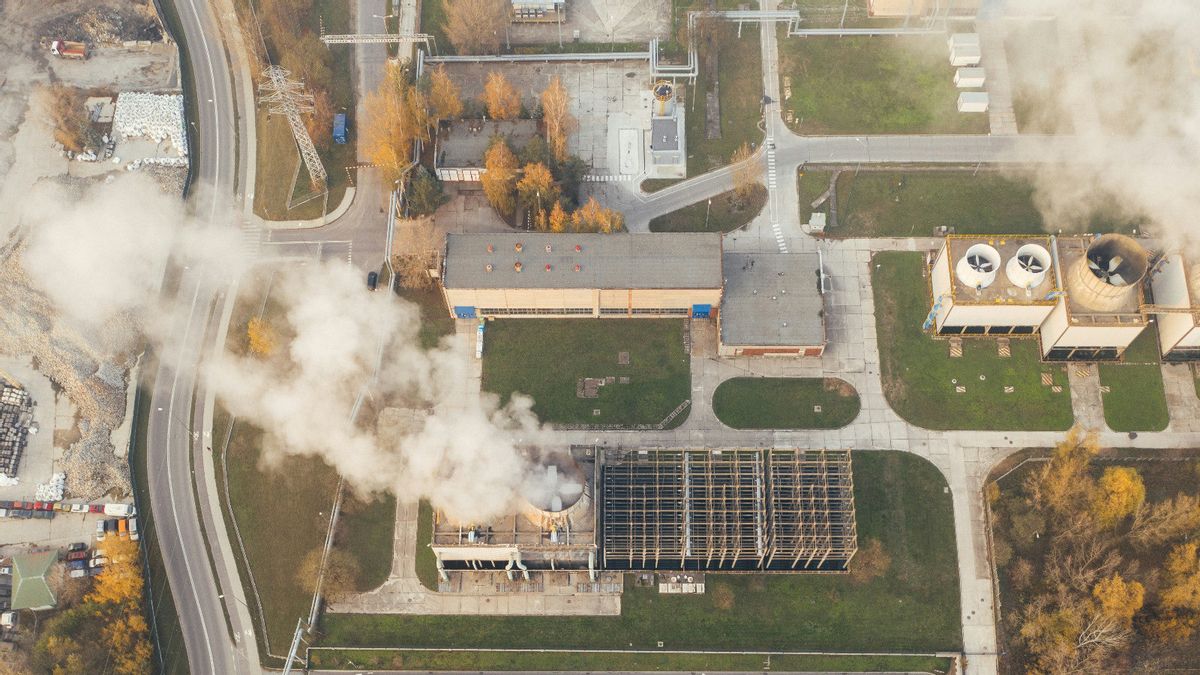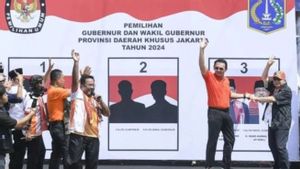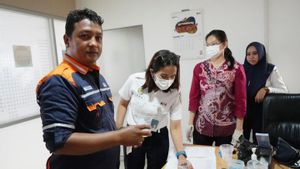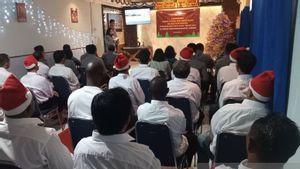JAKARTA - The Indonesian government seems to be acting more as a carbon worker who will only benefit emission-producing countries and create new money for a handful of extra-extective industry conglomerates in Indonesia in the 29th Conference of the Parties (COP) in Baku, Azerbaijan.
Meanwhile, President Prabowo's plan to launch green economic funding from the 557 million carbon sales target contains many fake solutions that risk biodiversity, indigenous peoples and even dependents of new debts.
This carbon trade is targeted to be able to reap US$65 billion (around one thousand trillion rupiah) in 2028 and is predicted to be able to open up new jobs that boost economic growth to 8%, and reforestation.
The sale of carbon, which the government calls climate action, wants to deny the absence of the country during natural forests as natural carbon sinks, has been involved in recent years. Even in 2023, the habitat forest of endangered rare animals and the life source of indigenous peoples in West Kalimantan was destroyed by only one company.
"The sale of carbon is campaigned when the government does not act anything when natural forests are destroyed either to achieve the target of the spurious energy transition program through biomass co-firing and national strategic projects such as food estates in Papua and downstream industrial areas in eastern Indonesia," said Amalya Reza, Manager of the Trend Asia Bioenergy Campaign, quoted from a media broadcast, Saturday, November 23.
Instead of selling carbon, the climate action that the government can take in addition to stopping the new PLTU development plan and reducing the generation of fossil energy sources is to apply a carbon tax for emission pollutors. Indonesian regulations have recognized the carbon tax as a preventive measure that will calculate the health impacts and environmental damage as an accounted fee.
From many studies, it was revealed that the Indonesian government could obtain a potential tax revenue from the energy sector of IDR 23.651 trillion in 2025 from the carbon tax imposed. Meanwhile, another study said that the potential income could reach a minimum of IDR 51 trillion for the carbon tax and IDR 145 trillion for carbon permits per year.
"It's time for President Prabowo to reverse policies that damage the environment and act to protect increasingly vulnerable citizens through tax collection from emissions-producing industries that cause extreme weather and global warming," said Beyrra Triasdian, Trend Asia's Renewable Energy Campaigner.
The carbon trade driven through a market mechanism will only make local communities in charge of the carbon tax. Moreover, our regulations have facilitated the imposition of a carbon tax whose potential is much greater than targeted through the market. Instead of encouraging renewable energy to overcome carbon emissions, the choice of fake solutions offered will actually trap Indonesia in greenwashing practice alone.
SEE ALSO:
"Even though the imposition of a carbon tax has proven to be quite effective to encourage polluting companies to change their business to be more efficient and environmentally friendly," Beyrra added.
The Indonesian government also often uses fake energy transition solutions. For example, the government moves away from deforestation but by encouraging the burning of wood (co-firing biomass) through the Industrial Plantation Forest (HTI) or the Energy Plant Forest (HTE). In fact, both are types of forest that are greedy for land and damage the surrounding ecosystem. Trend Asia (2022) Research also found that the existence of HTE was unable to reduce to zero emissions due to the resulting deforestation.
Efforts to reduce the climate crisis should focus on a non-market approach that pays attention to the sustainability of the surrounding ecosystem, for example the thorough restoration of the forests that are held and carrying out economic recovery for the affected communities. Economic recovery is not only judged with money, but a fair and sustainable economic system," concluded Amalya.
The English, Chinese, Japanese, Arabic, and French versions are automatically generated by the AI. So there may still be inaccuracies in translating, please always see Indonesian as our main language. (system supported by DigitalSiber.id)

















